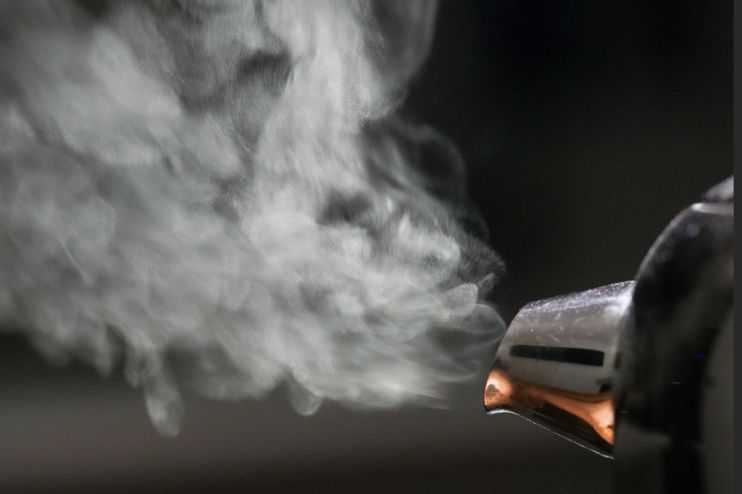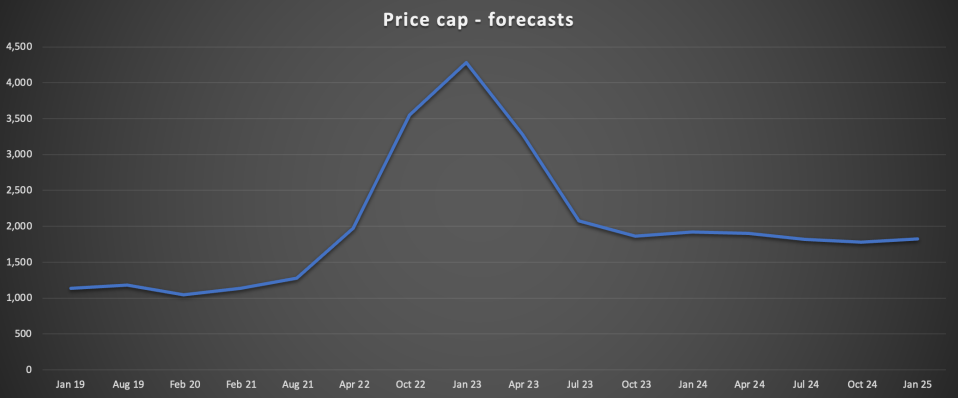Ofgem boss reignites calls to reform energy price cap as winter looms

Ofgem boss Jonathan Brearley has doubled down on his criticisms of the energy price cap, raising doubts over its future role in the market.
Speaking at trade association Energy UK’s annual conference yesterday, the chief executive revealed the watchdog is prepared to “examine all options” for regulating prices for households.
In his view, the industry needed to “plan on the basis that wholesale markets may remain volatile” with high prices “for some time.”
He said: “The price cap has delivered for customers when the market was calm, and brought much needed stability at the start of the gas crisis.
“However, if our wholesale markets continue to be volatile, we need to examine all options for price regulation to make sure we have the right approach that protects customers, can adapt to fast changing markets, and leads us to a different form of retail market where energy is used far more flexibly by consumers.”
This follows Brearley urging ministers earlier this year to consider whether the “very broad and crude” price cap is still fit for purpose following the domestic energy crisis, which saw 30 suppliers collapse.
“The price cap was designed for a market that was much more stable — so, pre-2020 — and it worked quite well. But in this volatile market, the price cap has costs as well as benefits, so we would welcome a debate on the future of pricing regulation,” he told The Guardian in August.

Introduced in 2019, the energy price cap establishes the maximum price customers can be charged for average usage.
It was intended to protect long-term users from higher bills with suppliers targeting switching customers.
However, when wholesale costs rose following rebounding demand during the pandemic and Russia’s later invasion of Ukraine, it effectively became the default price for millions of customers — rising in line with soaring gas prices.
Currently, the energy price cap is confirmed quarterly and is set at £1,923 per year for the final three months of this year, more than 50 per cent higher than conventional pricing levels.
This comes ahead of winter, with support packages phased out from the government, as heating demand rises in line with colder weather.
Energy bosses are split over the value of the price cap, but Cornwall Insight, which makes long-term price cap predictions, is more critical — and does not expect energy bills to fall significantly within the next 12-15 months.
Dr Craig Lowrey, principal consultant for the energy specialist told City A.M. earlier this year he does not expect prices to fall significantly for years to come.
“We have modelled the cap out until the end of the decade. Those numbers indicate — based upon where the wholesale markets is — that we don’t see household energy bills returning to the levels we saw in 2021-22 this decade,” he said.
The energy specialist has also raised concerns over whether the mechanism is functioning as intended, and has instead called for longer-term measures to reduce bills such as separating the cheaper cost of renewables from the price of gas.
…we don’t see household energy bills returning to the levels we saw in 2021-22 this decade.
Cornwall Insight – Dr Craig Lowrey, Principal Consultant
The price cap was brought in through parliamentary legislation and despite Ofgem’s concerns, would need the consent of government and MPs for its scrapping through another vote.
When approached for comment, a Department for Energy Security and Net Zero spokesperson said: “We are actively consulting on the future of the energy market, to ensure households and families can access the full benefits of moving to a smarter, more flexible energy system.
“We recognise the role the price cap has provided in incentivising suppliers to become more efficient and helping the government deliver support to families – last winter we provided nearly £40 billion to cover around half a typical household’s energy bill.
“We will always ensure the energy market is working for consumers to protect them from sky high bills and that households are getting the best deal.”
Brearley’s comments come with the regulator aiming to reform the market to ensure its stability after the collapse of 30 suppliers while easing financial pressure on households.
Incoming Ofgem chair Mark McAllister confirmed to the energy security select committee he was prepared to challenge Brearley over the lack of oversight in the market before the domestic crisis.
He revealed he would consider replacing Brearley if there were concerns over Ofgem’s future direction.
McAllister, who is expected to take up the role of chair next month, said: “I would if I found that was the case.”